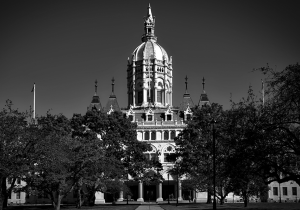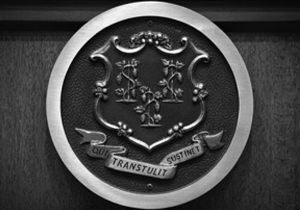The 2021 virtual legislative session concluded at midnight June 9th on the heels of the Legislature’s adoption over the last two days of a bipartisan $46.3 billion 2022-23 budget that avoids new tax hikes—unless you count a bill voted on separately that imposes a new highway user tax, known as HUT, on heavy trucks.
But despite efforts by leadership to tie up loose ends, some priorities were left unfinished, namely a plan for distributing unallocated federal ARP money; a bill to legalize adult-use of cannabis; budget implementation and revenue bills; and a bill addressing voter registration, absentee ballots, and early voting, to name a few.
In addition to the budget, a larger, more progressive Democratic majority pushed for equity across the board in various labor, workers’ compensation, housing, judicial, public health, and education r proposals. Below is an accounting of some of the higher-profile measures outlining those that made the cut and those that ended up on the cutting room floor—at least for the time being.
BILLS THAT PASSED
–Biennial Budget-2022-23 (HB 6689)—See Capitol Report summary on 6/8.
–Bond Package (HB 6690): This is a $5.7 billion, two-year package and includes financing to launch a new $1.5 billion, five-year investment program in Connecticut’s poorest cities and towns.
–Sports Wagering (HB 6451): Legislation authorizing in-person and online sports wagering; online casino gaming; in-person and online keno; online lottery games other than keno, and fantasy sports contests. The bill authorizes the two CT tribes and the Connecticut Lottery Corporation to operate these games subject to specific requirements, including limiting the authorizations to an initial 10-year period with an option for a five-year renewal.
–Unemployment Insurance Trust Fund (HB 6633)—This bill seeks begins restructuring and restoring solvency to the Fund.
–HUT on Certain Heavy Trucks (HB 6688): This bill, characterized by some as a toll on trucks in disguise, imposes per-mile tax rates on certain heavy (Class 8 or above) commercial, multi-unit trucks. The rates increase based on vehicle gross weight and take effect January 1, 2023.
—Zoning Enabling (SB 1024): The bill attempts to begin addressing restrictive and exclusionary zoning practices.
–Immunizations (HB 6423): This bill eliminates the religious exemption from immunization requirements for individuals attending public and private schools, including higher education institutions; and childcare centers and group and family day care homes.
–Telehealth (HB 6470): Makes permanent certain changes related to home health, telehealth and utilization review in the medical assistance program that were implemented by executive order during the COVID-19 public health emergency.
–Bottle Bill (SB 1024)—Revamps the state’s beverage container redemption law.
–Health Care for Poor, Uninsured Children (6687) This bill provides for medical assistance, subject to income limits and within available appropriations, to certain groups of people regardless of immigration status who would not otherwise qualify for health care coverage. The bill extends this coverage to children under age nine and to women for 12 months after giving birth.
BILLS THAT DID NOT PASS
Note: while the call of the Special Session is to solely address bills and resolutions dealing with budget implementation, it is not uncommon for other proposals to be resurrected and considered if even a slight nexus to the call can be established.
—Legalization of Adult-Use Marijuana (SB 1118) –Bill passed the Senate 19-17, but was not brought up for a vote in the House. It will be address in Special Session.
—Budget Implementation, Revenue (TBD): To be taken up likely during Special Session.
–TCI (SB 884)—Would implement a regional Climate Initiative Program to cap and reduce transportation-related greenhouse gas (GHG) emissions.
–HIT (HB 6447)—This bill, part of the Governor’s legislative package, would have imposed a $50 million surcharge on insurance premiums to help finance a public option health insurance proposal.
–Public Option (SB 842): Would have created a state-run, fully insured health insurance plan for small businesses and nonprofits.,
–Captive Audience (SB 661): This proposal, which never made it out of the Labor Committee, would have prohibited an employer from coercing employees into attending or participating in meetings sponsored by the employer concerning the employer’s views on political or religious matters.
–AB, Voting Reforms (SB 5): This bill, which will be addressed in Special Session, deals with removing obstacles to voting, including early voting and absentee ballot registration.
—PFAs in Food Packaging (SB 837): As amended, the bill extended the effective date of the ban on PFAS in food packaging from July 1, 2021, to October 1, 2021, and eliminated the provision that considers using PFAS as a processing agent, mold release agent, or intermediate to be an intentional introduction when it is detected in the final package or component.
—Privacy (SB 893): The bill sought to establish a framework for controlling and processing personal data.
—Predictive Scheduling (SB 668): This bill generally would have required employers with at least 500 employees globally to pay certain types of employees (i.e., those in wholesale, retail, restaurant occupations, and certain hotel occupations) half of their regular pay rate for any scheduled hours that the employer canceled or reduced.
Broadband (HB 6442): Bill sought to expand deployment of broadband statewide.
Finally, as we put this highly unusual, virtual legislative session behind us, we wish everyone a healthy, truly enjoyable summer. We will keep you posted on the Special Session.


